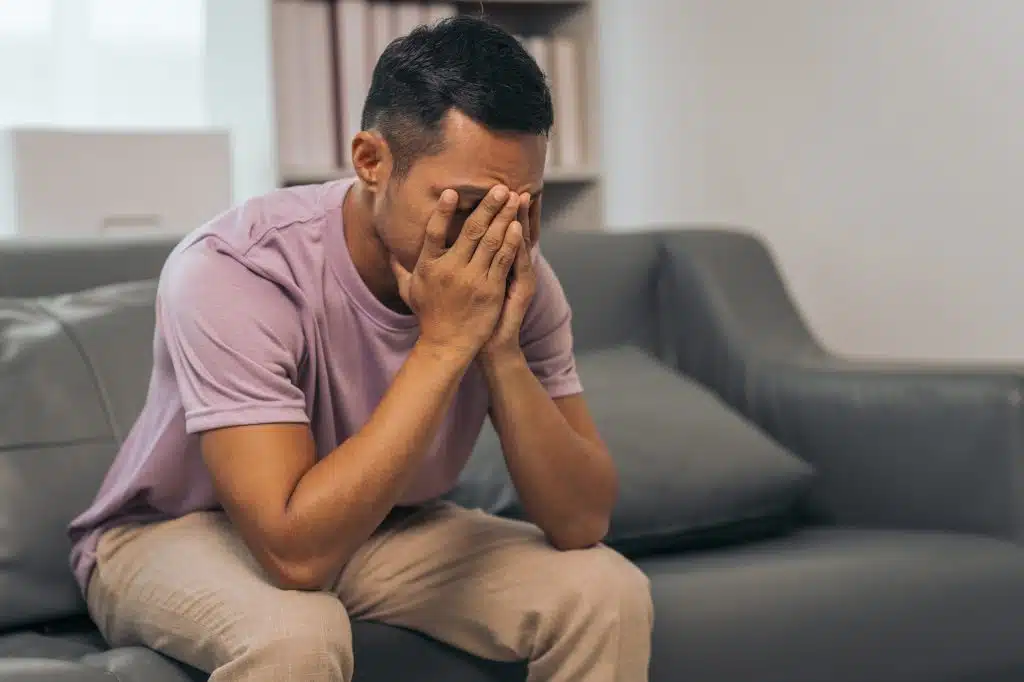
In the world of addiction recovery, there are many different challenges individuals face. One of the most complex and difficult-to-treat conditions is co occurring disorders, also known as dual diagnosis. This refers to the occurrence of both a mental health disorder and a substance use disorder in the same individual, requiring specialized and integrated treatment approaches.
In this article, we’ll explore what co-occurring disorders are, how they complicate treatment, why dual diagnosis treatment is crucial, and how rehab centers can provide comprehensive care for individuals facing these challenges.
Understanding Co-Occurring Disorders
What Are Co-Occurring Disorders?
Co-occurring disorders refer to the presence of both a substance use disorder and a mental health disorder. This can include a wide range of mental health conditions, such as anxiety, depression, bipolar disorder, schizophrenia, and more, all of which interact with substance abuse issues in complex ways.
For example, an individual might use alcohol or drugs to self-medicate symptoms of anxiety or depression, only to find that their mental health worsens as a result of the substance use. Alternatively, someone struggling with bipolar disorder may turn to substances to cope with mood swings, but the substance use disorder exacerbates their mental health symptoms.
Common Co-Occurring Disorders
Some of the most common mental health and substance use combinations include:
- Depression and Alcohol Use Disorder
- Anxiety and Marijuana or Prescription Drug Abuse
- Bipolar Disorder and Cocaine Addiction
- Post-Traumatic Stress Disorder (PTSD) and Alcohol/Drug Abuse
- Schizophrenia and Polysubstance Use
The combination of mental illness and substance abuse presents unique treatment challenges. Since the symptoms of one disorder can mimic or amplify the symptoms of the other, it’s difficult for individuals to receive a proper diagnosis and appropriate care without specialized treatment.
Why Co-Occurring Disorders Are Challenging
The complexity of co-occurring disorders arises because the symptoms of both the addiction and mental health conditions can overlap or worsen each other. Without proper treatment, this cycle can continue, often leading to worsening mental health, substance abuse, or both. Additionally, the stigma surrounding mental health and addiction may prevent individuals from seeking help, and the lack of specialized treatment programs may make it difficult for individuals to receive appropriate care.
The Importance of Dual Diagnosis Treatment
Why Treating Both Disorders Simultaneously is Essential
One of the primary reasons dual diagnosis treatment is crucial is that mental health disorders and substance use disorders often influence each other. For example, someone with severe depression might turn to substances to escape feelings of hopelessness, but the substance use can, in turn, worsen the depression. Similarly, anxiety might make someone more prone to using drugs or alcohol to numb their emotional pain.
By treating both disorders simultaneously, rehab centers can offer a more holistic and effective treatment plan that addresses the root causes of both issues. Integrated treatment ensures that mental health and addiction professionals work together to create a cohesive plan that supports the patient’s overall well-being.
Consequences of Treating Only One Disorder
When only one disorder is treated at a time, the other can still influence the individual’s behaviors, making it more difficult for them to stay in recovery. For example, someone with untreated anxiety might relapse into alcohol or drug use to manage their stress, while someone with addiction who hasn’t addressed their underlying mental health issues may struggle to maintain long-term sobriety.
Signs and Symptoms of Co-Occurring Disorders

Recognizing the Signs of Co-Occurring Mental Health and Substance Use Issues
Recognizing the signs of co-occurring disorders can be difficult because the symptoms of substance use and mental health conditions often overlap. Some common signs to watch for include:
- Mood swings or frequent emotional instability
- Substance abuse (alcohol, drugs, or prescription medications)
- Isolation or withdrawing from loved ones
- Anxiety, depression, or hopelessness
- Sleep disturbances or extreme fatigue
- Risky behaviors such as reckless driving or dangerous activities
Anyone experiencing these symptoms should seek professional help to ensure they receive the right diagnosis and care.
Why Diagnosis is Complex
Diagnosing co-occurring disorders is difficult because the symptoms of mental health issues often mirror or exacerbate those of substance abuse. For example, depression and substance abuse can both result in fatigue and a lack of motivation, making it hard to distinguish one from the other. It requires careful assessment and specialized knowledge to accurately diagnose both conditions.
Find Hope and Healing: Call Us Now!
Take the first step towards a brighter future! If you or a loved one is seeking support for substance abuse, we are here to help. Call us today and let our dedicated team guide you to the right treatment options. Your path to recovery starts now!
- Connect with an expert addiction specialist 24/7/365
- Learn about treatment costs
- Arrange fast access to a treatment program
Request a Call
OR
Make a Call
Types of Rehab Centers for Dual Diagnosis Treatment
Inpatient Rehab Centers for Co-Occurring Disorders
Inpatient rehab centers offer 24/7 care in a structured and supportive environment, making them ideal for individuals who require intensive treatment. Inpatient programs are particularly beneficial for individuals with severe co-occurring disorders who need constant supervision to manage both their mental health and addiction issues.
These programs provide a safe and therapeutic environment where individuals can focus on their recovery, free from the distractions and temptations of the outside world. Inpatient rehab typically includes individual therapy, group therapy, medication management, and various forms of holistic treatment like art therapy or mindfulness.
Outpatient Rehab Centers for Co-Occurring Disorders
Outpatient programs provide more flexibility, allowing individuals to live at home while receiving treatment. These programs are best suited for individuals with less severe dual diagnosis issues or those who have already gone through inpatient rehab and need ongoing support.
Outpatient rehab involves regular therapy sessions (individual and group) and continued care for managing mental health symptoms and substance use.
Luxury Rehab Centers for Dual Diagnosis
For those who prefer a more comfortable and private environment, luxury rehab centers provide a high-end experience while offering specialized care for co-occurring disorders. These centers combine top-tier amenities with intensive therapy and counseling, offering a holistic approach to recovery that treats both the addiction and mental health aspects of dual diagnosis.
Holistic Rehab Centers for Dual Diagnosis
Holistic rehab centers take a more comprehensive approach to recovery by focusing on healing the whole person. These centers integrate traditional therapies with alternative treatments such as yoga, acupuncture, nutrition counseling, and meditation. This approach can be particularly beneficial for individuals with co-occurring disorders, as it addresses both the physical and emotional aspects of recovery.
Treatment Approaches for Co-Occurring Disorders
Integrated Therapy: Combining Addiction and Mental Health Treatment
Integrated therapy is the foundation of dual diagnosis treatment. It involves treating both mental health and addiction issues at the same time, with professionals from both fields working together. This collaborative approach ensures that all aspects of the individual’s condition are addressed in a way that supports long-term recovery.
Cognitive Behavioral Therapy (CBT)
CBT is a common therapeutic approach for treating both mental health and substance use disorders. CBT helps individuals recognize and change negative thought patterns that contribute to substance abuse and mental health symptoms. It’s particularly effective in helping individuals with dual diagnosis manage stress, anxiety, and depression.
Dialectical Behavioral Therapy (DBT)
DBT is a form of cognitive-behavioral therapy that focuses on helping individuals manage intense emotions. It’s especially useful for individuals with co-occurring disorders like borderline personality disorder and substance abuse issues. DBT teaches coping skills, mindfulness, and distress tolerance.
Motivational Interviewing (MI)
Motivational interviewing helps individuals explore their ambivalence about making changes. It’s an effective tool for encouraging people with co-occurring disorders to embrace recovery, particularly when they may be resistant to treatment.
Medication-Assisted Treatment (MAT)
MAT combines therapy with the use of medications to manage withdrawal symptoms and cravings. MAT is particularly effective for individuals with opioid or alcohol use disorders and can be helpful for managing co-occurring disorders, as it allows individuals to stabilize their addiction while addressing their mental health issues.
Trauma-Informed Care
Many individuals with co-occurring disorders have a history of trauma, which can contribute to both their mental health and addiction issues. Trauma-informed care recognizes the role of trauma in the recovery process and focuses on creating a safe, supportive environment for healing.
Medications Used in Dual Diagnosis Treatment
Psychiatric Medications for Mental Health Disorders
Psychiatric medications like antidepressants, antipsychotics, and mood stabilizers may be prescribed to manage mental health symptoms such as depression, anxiety, or bipolar disorder. These medications are often combined with therapy and counseling to support the overall treatment plan.
Medications for Substance Use Disorders
Medications such as methadone, buprenorphine, and naltrexone are commonly used to treat opioid and alcohol addiction. These medications help reduce cravings and prevent relapse, which is crucial when managing a dual diagnosis.
Key Factors to Consider When Choosing a Rehab Center for Dual Diagnosis
Accreditation and Licensing
Make sure the rehab center is accredited by a recognized organization like the Joint Commission or CARF. Accreditation ensures that the facility meets established standards for care.
Specialized Dual Diagnosis Programs
Choose a center that offers specialized programs for dual diagnosis treatment, with staff trained to address both mental health and addiction issues simultaneously.
Staff Qualifications and Experience
Look for rehab centers with licensed professionals who have experience in treating co-occurring disorders. This includes psychiatrists, psychologists, therapists, and addiction counselors.
Individualized Treatment Plans
Rehab centers should offer personalized treatment plans that address the unique combination of mental health and addiction issues an individual is facing.
Approach to Aftercare and Long-Term Support
Ensure the center offers a comprehensive aftercare plan to help individuals maintain recovery once they leave the facility. This can include therapy, support groups, sober living homes, and ongoing counseling.
Find Hope and Healing: Call Us Now!
Take the first step towards a brighter future! If you or a loved one is seeking support for substance abuse, we are here to help. Call us today and let our dedicated team guide you to the right treatment options. Your path to recovery starts now!
- Connect with an expert addiction specialist 24/7/365
- Learn about treatment costs
- Arrange fast access to a treatment program
Request a Call
OR
Make a Call
Conclusion
Rehab centers that specialize in dual diagnosis treatment for co-occurring disorders offer comprehensive care that addresses both mental health and substance use issues simultaneously. By choosing a rehab center that provides integrated care, individuals can achieve lasting recovery and reclaim their lives from addiction and mental health challenges.
If you or someone you know is struggling with a co-occurring disorder, seek professional help today. Dual diagnosis treatment can be the first step toward a brighter, healthier future.
FAQS
1. What are co-occurring disorders?
2. Why is it important to treat both disorders at the same time?
3. What types of treatments are used for dual diagnosis?
4. Can someone with a dual diagnosis recover without inpatient treatment?
5. How do I find the right rehab center for dual diagnosis?
Our helpline is 100%
free & confidential
If you or someone you care about is struggling with drug or alcohol addiction, we can help you explore your recovery options. Don’t face this challenge alone—seek support from us.
Programs
Resources
Will my insurance
cover addiction
treatment?
We're ready to help
Find the best
drug or alcohol treatment
center
Are you or a loved one struggling with addiction? Call today to speak to a treatment expert.












